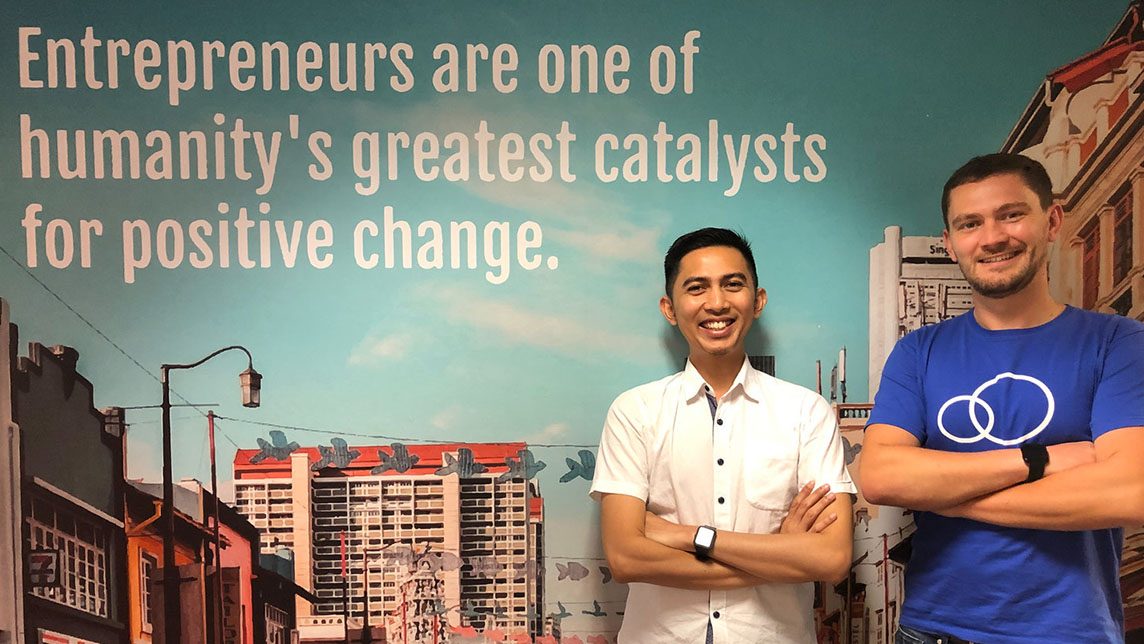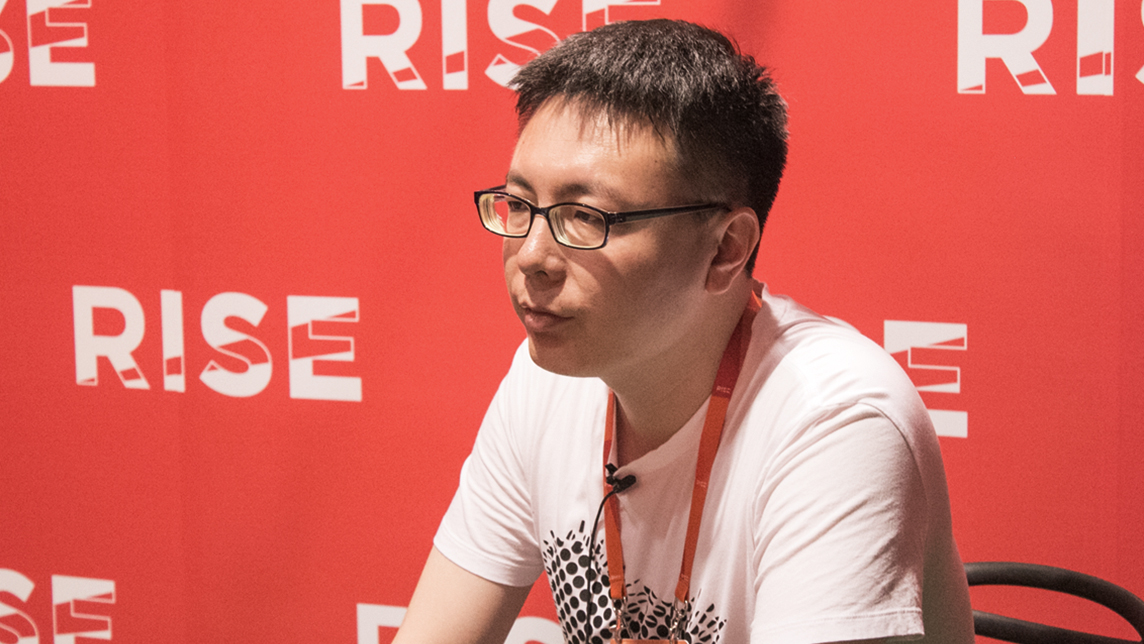Data science seems to be all the rage, from fledgling startups to unicorns and conglomerates. With recent advances in machine learning and analytics, companies can make better decisions backed by real data. Sometimes, it's even possible to discover future opportunities and challenges before anyone else does.
However, data analytics is expensive and complicated. For the most part, it remains out of reach for many SMEs. Datanest, an Indonesian startup founded by Manggala Ratulangie and Thibaud Plaquet, wants to change that by providing data science as a service.
CompassList sat down with the company co-founders to find out how their service works, and how companies can optimize their business or leverage their data with Datanest.
This interview has been edited for length and clarity.
How did Datanest start?
Manggala Ratulangie: We first met four years ago when we were hired to do big data analytics for a startup called Omnicart. The startup didn't do well and we failed to deliver the product to the market. We kept thinking about how we could have done it better and we came up with the idea of not just delivering big data tools, but also the analytics software behind it.
Thibaud Plaquet: Omnicart was my first experience with retail companies in Indonesia. We joined another startup, Qasir, which has recently received new funding and is now successful. During that time we were approached by people who were serious about doing big data, so we decided to resign and build our own company.
Datanest's proposition is "data science as a service." How does that work?
Ratulangie: When we talk about data science and big data, it's a bit of a chicken-and-egg problem. Some companies have very advanced technology for data processing, but they don't have a good data team behind it. Other companies have good data teams but not the infrastructure they need to process the data properly. Datanest offers both the technology and a skilled team to process data and handle the business questions that our clients are asking.
Plaquet: Our other products include TrueScore [jointly developed with fintech startup Brankas], a credit scoring algorithm for banks that assesses loan applicants using their bank statements; and DemandAI, a demand planning and inventory forecasting tool for retail and B2B companies. Our products cannot be easily replicated and are very affordable for companies.
When you say affordable, what's the price you're offering?
Plaquet: For custom AI, our prices start at $2,000 per month for a 12-month contract. This includes the infrastructure and maintenance.
Just to give you an idea, this is the cost of hiring one experimental data scientist in Indonesia, including tax and office expenses. To create a full solution, you need at least three people: a data scientist, a data engineer and a system architect. Sometimes you'd need a UX designer, product manager and backend developer, too. We're offering a full team of those six people for the price of hiring one scientist. For AI-powered searching, our pricing starts at IDR 100 per query.
The pricing varies according to the complexity of the query. For example, for TrueScore, the query is priced at $1 per successful query. Every time a bank statement goes through our service and produces a credit score, we charge $1.
What does the infrastructure entail?
Ratulangie: Companies wanting to do analytics should know that infrastructure needs to be updated often. Analytics generates a new, growing set of data separate from the input. A company needs powerful enough hardware and infrastructure to run the calculations and give them the results they need as quickly as possible. Most of the time, it's pretty expensive. Not every company can afford to have that kind of infrastructure, especially mid-sized businesses. With our solutions, companies don't have to think about how to integrate a new analytics infrastructure into their system because we handle that for them.
Datanest says it can also help clients to leverage their data. How does that work?
Ratulangie: Some companies can use the data they already have to make decisions that save costs or generate new revenue streams. Others collect data that can be used by different companies. We work out how to process the data and provide insights for clients. One of our partners collects weather data, which might be useful in mining or to predict rainfall in plantation management. These companies are not our main targets, but we have been approached before.
So what kinds of companies are working to leverage their data with you right now?
Ratulangie: Most of the companies working with us are optimizing their business processes and saving costs. They're mostly from the finance industry, such as fintech firms and multi-finance companies. Recently, we've been getting clients from the retail and logistics industry, too. One of the biggest FMCG distributors of dry goods in Indonesia has engaged us to handle demand forecast for mom-and-pop stores.
Plaquet: We're also working with the number-one mobile B2B FMCG marketplace in Indonesia and we're finalizing some deals with certain manufacturers. FMCG is an industry we are targeting because of the recurrence and volume of the products they sell.
Does this data involve personal customer details? If so, how does Datanest provide safety and security?
Ratulangie: We don't mix data between clients. If necessary, we can anonymize and encrypt data with a one-way encryption process. We also maintain a secure infrastructure to process the data. Our benchmarks for privacy and security come from countries such as Singapore and Australia because Indonesia currently doesn't have a strong legal framework for these matters. Of course, in the future we might update our benchmarks to follow the GDPR [the European Union General Data Protection Regulation] because some companies from the EU are already contacting us to work with them.
Can you give a case study of how Datanest has helped a client?
Ratulangie: One of the things we can share right now is demand forecasting for B2B e-commerce. It's kind of tricky because right now all the B2B distribution channels for FMCG use distribution companies to go to their merchants. The problem is that they only have 5–10 minutes inside the store so they don't have time to make sales. They ask which products are running out, offer to replenish the stock and that's it. The only thing they could do previously to increase sales was to hire more salesmen.
We created a fast-order button for these shops. Using an AI algorithm that predicts the merchants' inventory, we can quickly estimate the amount that the salesmen needs to offer in order to replenish stocks and also provide recommendations for upselling. This AI has helped salesmen save more than 1,000 man-hours per month asking about the merchants' stock.
Plaquet: Recently we won a challenge organized by Google with a company called Gringgo based in Bali. We created an image classification engine to detect recyclable trash within a picture.
Ratulangie: We found that many social impact companies doing recycling see the economic case behind it, for example what kind of recyclable material is in the trash. We have reinforced that economic case by creating the image recognition engine. The project with Gringgo is ongoing.
In building Datanest, what are some of the biggest challenges and how are you solving them?
Ratulangie: One of the biggest challenges is educating people on what AI can be used for. Many people think that AI is like the Terminator, that it can think for itself. In reality, if humans can't do it, AI most likely can't. We used to do some free data exploratory work for prospective customers, but it took us much longer than we intended. We decided that we should gather businesses that are already interested in doing AI and that we should show them the benefits from the business perspective instead of the technical. We invited business stakeholders and their BI department to brainstorm their problems. We then found the companies who already had the data, who could put value on said data and take action with it while also having the management support to use our solutions.
Plaquet: Another challenge is finding companies that are ready to use AI. Some companies are very excited about doing it, but most of the time we find that they're not ready because the data is not processed into a form that's ready to use in analytics.
Datanest is in the Accelerating Asia program. What made you decide to join?
Ratulangie: We're trying to build our product to be bigger and faster and we're also trying to penetrate overseas markets as there have been many requests from foreign companies to use our services. We were also impressed with Accelerating Asia's presentations: how they're helping early-to-middle stage startups penetrate the market faster and how they give us more focus in building our products.
What are you looking to get out of the program?
Plaquet: We're looking for help developing Datanest outside of Indonesia and into Southeast Asia. Of course, it's fine to get investors from within Indonesia, but getting investors from abroad can expand our network by connecting us with their portfolio companies.
Are you planning to raise a new round of funding?
Plaquet: Yes, by the end of this year. We're seeking $500,000. [The company declined to provide further details]
What are some of the most important lessons you've learned while building this company?
Ratulangie: I came from a tech background, so I was used to building products and seeing things from a tech standpoint first, instead of a business one. Nevertheless, we've proven that an Indonesian company can do serious big data analytics.
Plaquet: What we've experienced is that it's easier to sell "painkillers" than "vitamins." Most of the time custom AI is used as a "vitamin" to optimize processes and improve results down the road; the effect isn’t immediate. But it's easier to sell products such as credit scoring and demand forecast AI, which solve immediate problems and directly increase revenue. Those are the "painkillers" that we're selling.












